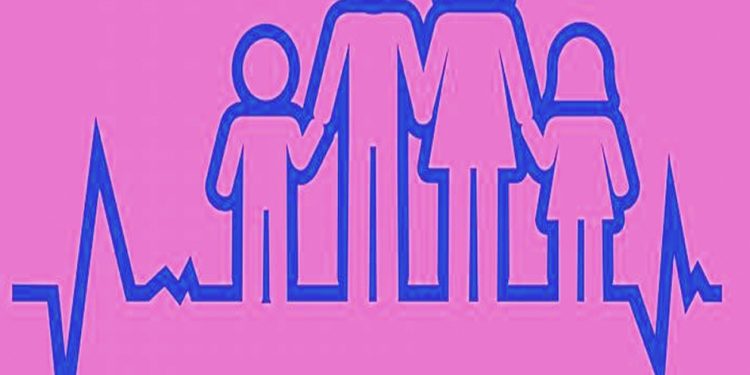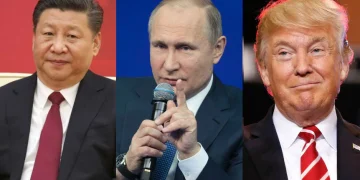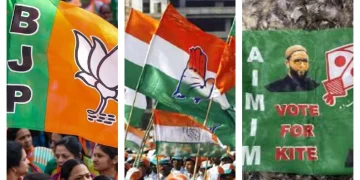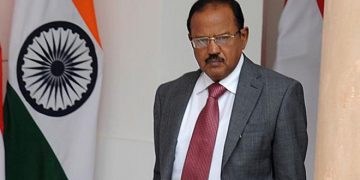Sarit Kumar Rout
Universal health coverage (UHC) simply means every citizen, irrespective of income, caste and social status, should have access to basic minimum health services without facing financial hardship. With more resources available, the state should progressively increase coverage and services. UHC has three dimensions — population, services and financing. Simply, adequate money or human resources cannot ensure UHC, it is comprehensive and encompasses service delivery, quality, and use of technology, health governance and administration.
Achieving UHC is among the key targets of Sustainable Development Goals, which many countries, including India, have pledged to achieve by 2030. Health being a state subject, efforts at the state level are critical to achieve UHC. Odisha, despite several impediments — low revenue base, sizeable proportion of poor (one-third below the officially declared poverty line), high concentration of tribal people with awful health indicators, has been making sincere efforts in recent years to achieve UHC. Most recently, the announcement of Biju Swasthya Kalyan Yojana (BSKY) is an appropriate measure in this direction. BSKY is not only about providing health insurance to eligible beneficiaries through the private sector, it is more about assuring healthcare services to all citizens, irrespective of income, caste and social status at public health institutions. Is it different from what public health sector intends to provide in India? Let us delve into the provision of BSKY. In Odisha, public healthcare institutions at the secondary level and above, charged user fees from citizens above the poverty line for a variety of services, including diagnostic services, ICU and cancer treatment. This is unrestricted now to all citizens.
Achieving UHC necessitates political commitment at the highest level through allocation of adequate financial resources to provide affordable care. Odisha, a low-income state with per capita GDP ranking at 16 among 26 states, has already sketched the blueprint
Anyone can walk into public health institutions with any aliment and get treated without spending from their pockets. Additionally, 70 lakh economically vulnerable households can avail healthcare services from empanelled private hospitals with financial coverage up to Rs 5 lakh per family and Rs 10 lakh to woman members. This is unique as pathways for achieving UHC have been conceptualised. The first two dimensions of UHC–population coverage and financial risk protection have been laid down in the policy and there is higher level of political commitment for this.
Translating these commitments to achieve UHC is fraught with challenges. We will restrict our discussions to three to four health system barriers and make a connection to BSKY to draw inferences for UHC. Odisha historically has a higher dependence on public sector and the utilisation is more than 70 per cent for both outpatient and inpatient care, second highest after Assam. On the contrary, most people incurred out-of-pocket expenditure (OOP) (76 per cent of total health expenditure) while accessing public healthcare institutions and this mainly occurred due to purchase of medicine and diagnostic services. The intent of BSKY is to reduce OOP by making medicine and diagnostic services adequately available to patients in public healthcare institutions. In the case of diagnostic services, the state has partnered with private laboratories to provide pathological tests, X-ray and other services at public healthcare intuitions. This, along with the free drugs scheme Niramaya, if implemented successfully, can provide substantial respite to many poor patients who earlier spent from their pocket in public health systems.
Anecdotal evidences suggest footfall has gone up in public hospitals after the launch of the scheme. It is, however, too early to gauge the impact of the scheme on OOP. Systematic data tracking with scientific analysis could bring critical insights for evidence-based policymaking in the state.
Further, several media reports suggest the expectation of the general public stands increased, but, the system-infrastructure falls short of expectations. Both schemes have their implementation trajectory and reaching scale is contingent upon the funding and capacity at different levels of care and there is opportunity to learn from experiences of Rajasthan and Tamil Nadu where free drug scheme has been efficiently implemented.
Another crucial initiative worth highlighting is the reform in creation of human resource to man the healthcare sector. Inadequacy in supply of human resource, especially in peripheral roles is well-known; a study recently published in a British medical journal showed that in Odisha the health worker density was 20 per 10,000 persons, compared with national average of 29. In response to the situation, which has prevailed for long in the state, the state government has initiated certain notable reforms, including the setting up new medical colleges in districts, producing clinical specialists though CPS at the district level, and producing public health specialists through postgraduate diplomas in public health management and certificate courses. These efforts are significant and will complement other recent efforts to improve performance of the healthcare system in the state.
Achieving UHC necessitates political commitment at the highest level through allocation of adequate financial resources to provide affordable care. Odisha, a low-income state with per capita GDP ranking at 16 among 26 states, has already sketched the blueprint. The state is expected to augment public spending gradually to at least 2.5 per cent of the state GDP (according to national health policy goal) from approximately 1.2 per cent now, spend these resources efficiently, and introduce appropriate payment methods to improve health system performance for providing UHC to all. It may learn lessons from Thailand, one of the few developing countries, which has successfully implemented UHC covering poor, near poor, formal sector employees and their relatives incrementally through a combination of public-funded and contributory schemes.
The writer works as associate professor with Indian Institute of Public Health, Bhubaneswar. e-Mail: sarit.kumar@phfi.org. Views are personal.






































